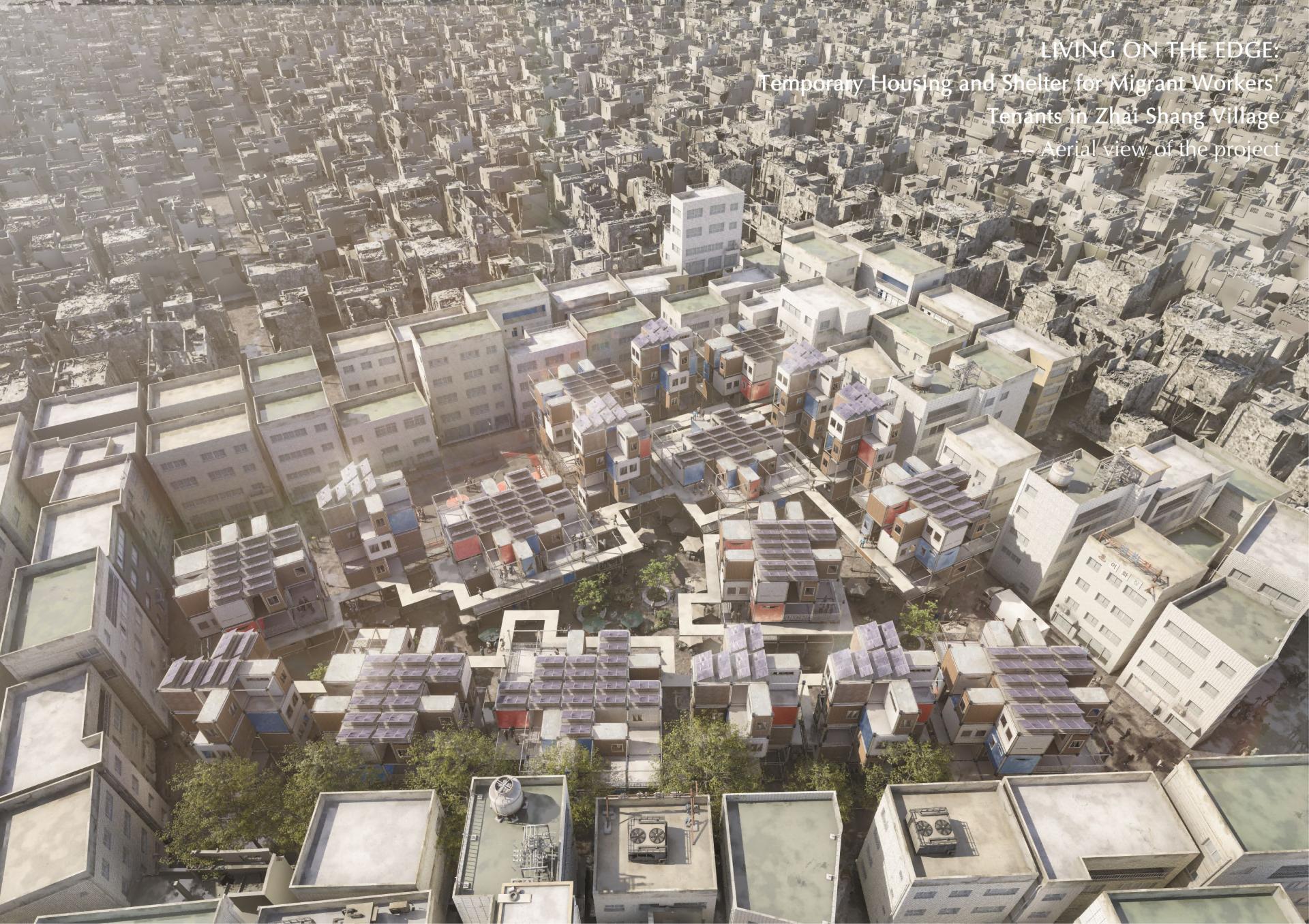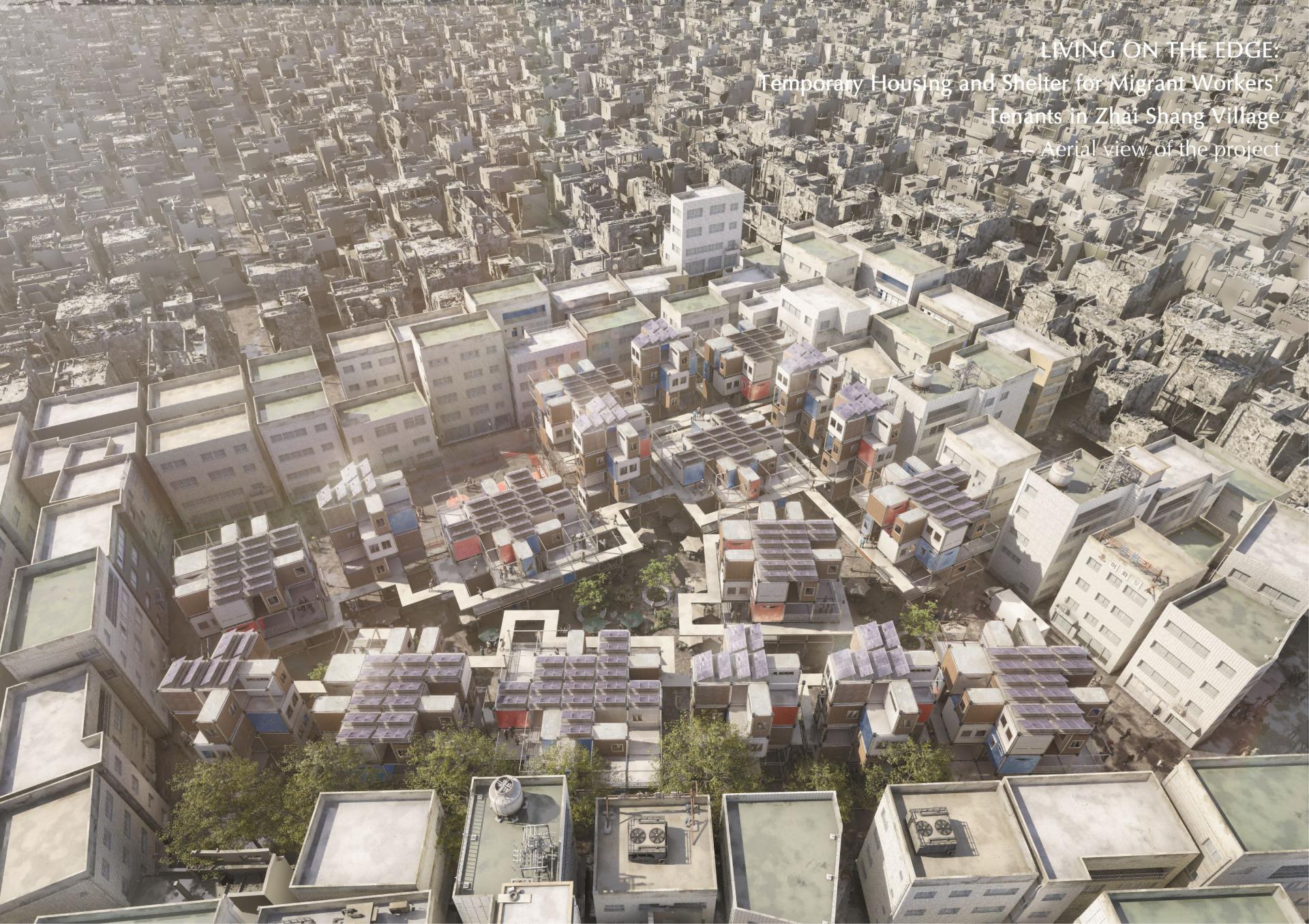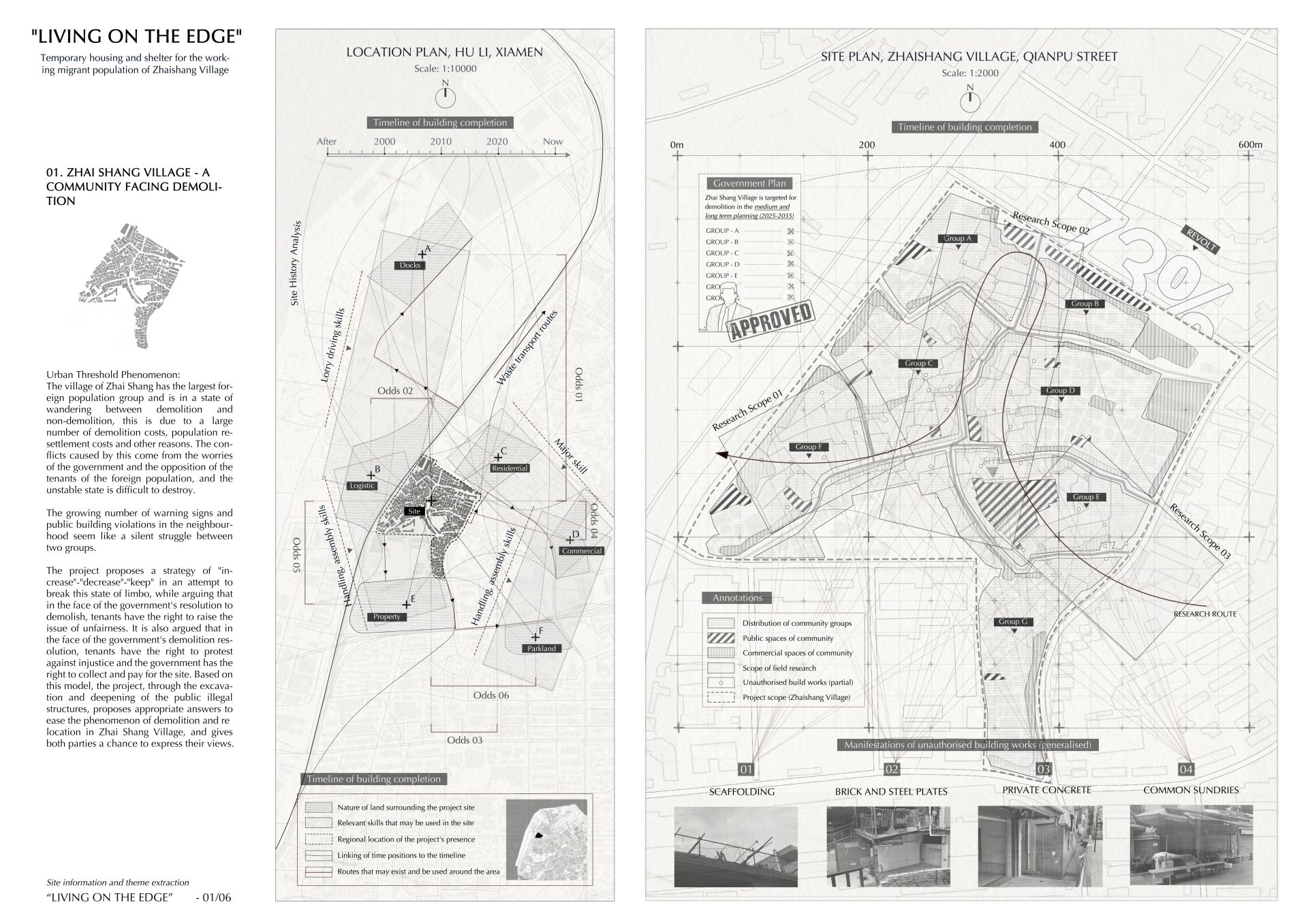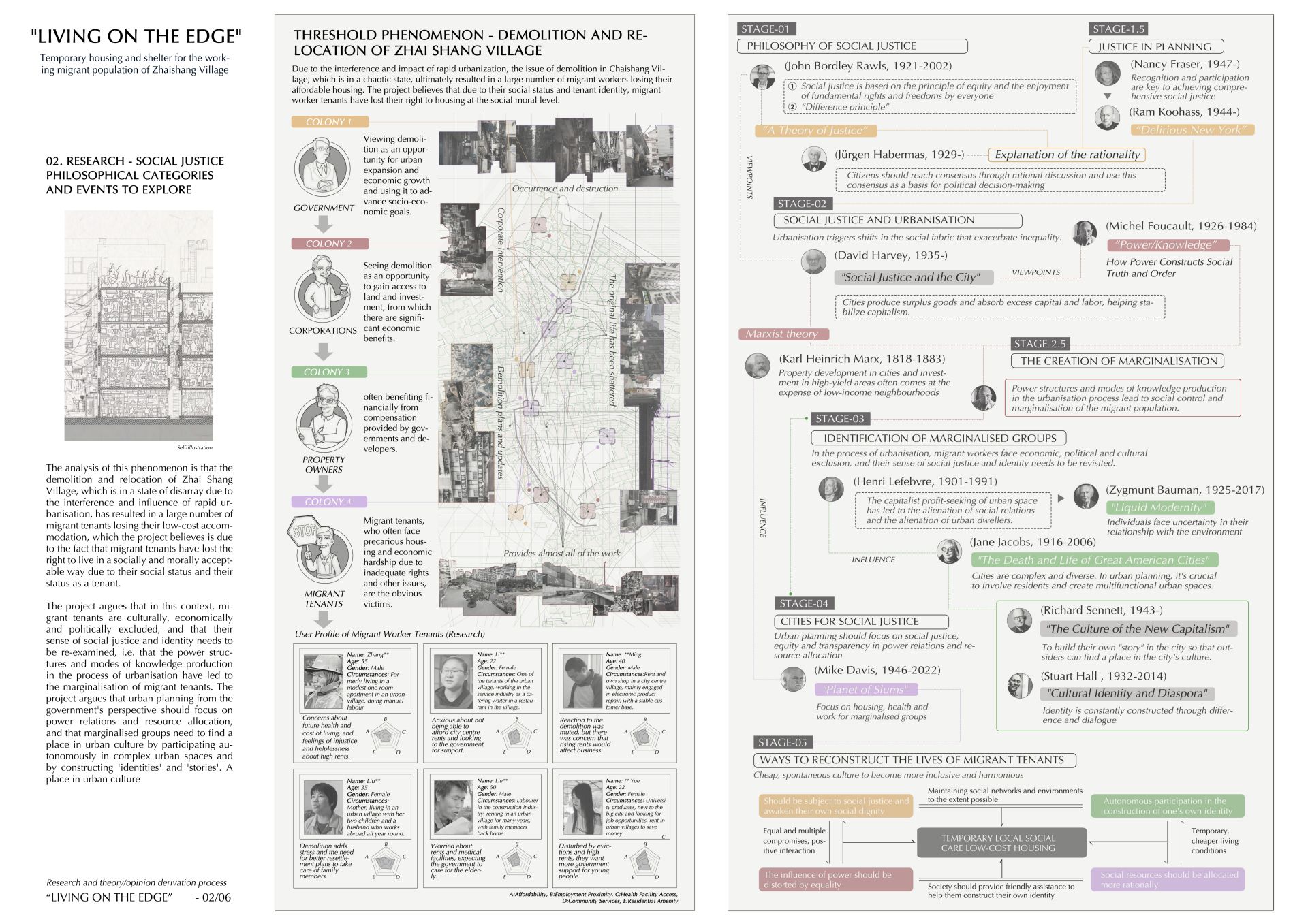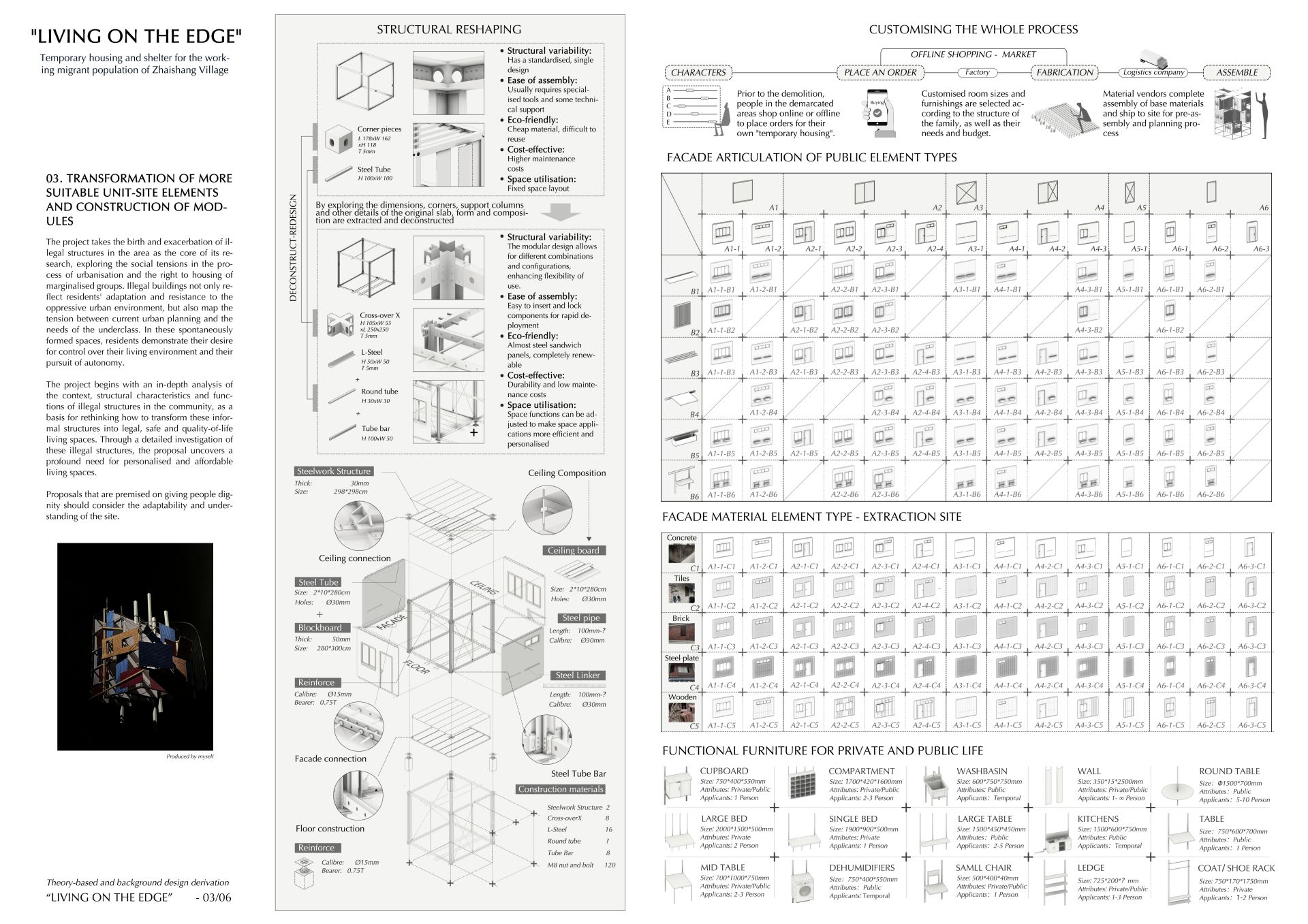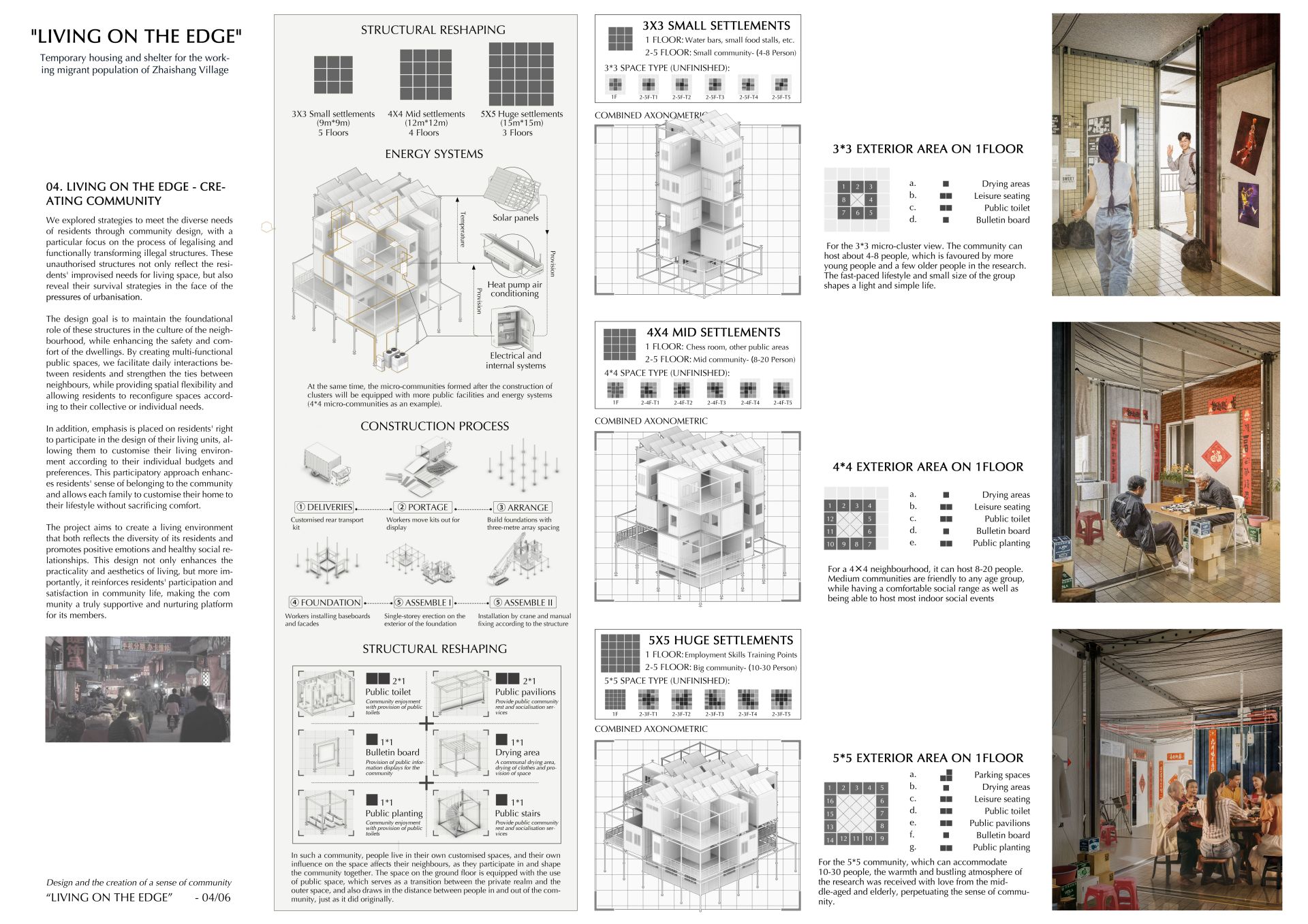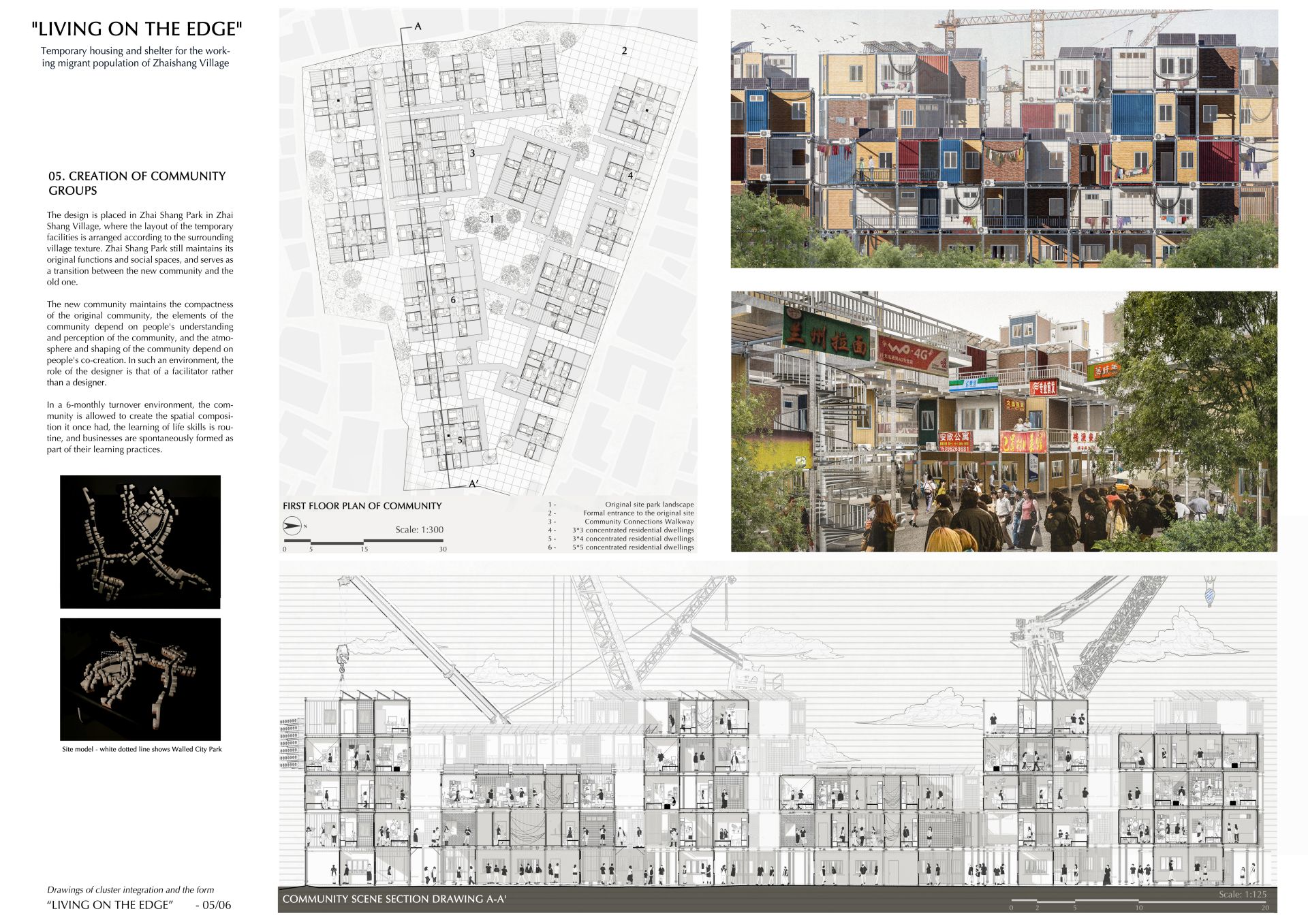Xiamen, an important city on the southeast coast of China, has experienced rapid urbanisation in recent years, attracting a large number of migrant workers. However, as the city expands, the issue of the right to housing for migrant worker tenants has become increasingly prominent, especially in the context of urban village demolition and relocation. Taking Zhai Shang Village as the research object, this project explores the temporary housing problem of migrant worker tenants and proposes solutions.
Through detailed site research and phenomenon analysis, the project finds that migrant tenants in Zhai Shang Village are generally unwilling to be demolished and relocated, and that unauthorised buildings have become their discretionary living area. The theoretical framework partly stresses that the basic right of residence and social identity of migrant workers should be safeguarded in the process of demolition and relocation through John Rawls’ theory of justice and Jürgen Habermas’ rational dialogue. Meanwhile, the theories of David Harvey and Michel Foucault point out that power relations and the control of capital in the process of urbanisation have exacerbated social inequality, and migrant workers have become targets of deprivation due to their low income and social status.
In terms of design strategy, the project proposes a temporary housing solution based on modular design, using materials that are easy to construct, assemble, disassemble and recycle, to provide a low-cost and highly adaptable temporary housing solution. The modular design not only allows for quick erection and dismantling, but also allows for flexible adjustments according to actual needs, ensuring that migrant tenants continue to enjoy the convenience of community life and social support during the demolition process. By creating public spaces with social attributes and functional community layouts, it promotes the social participation of migrant workers and enhances their social identity and sense of belonging.
With the goal of social justice, combined with participatory planning, the project aims to guarantee the basic right of residence of migrant workers, reduce social injustice and conflicts caused by demolition and relocation, and realise harmonious coexistence in urban development through fair resource allocation and reasonable design strategies.
Qixuan Hu 奇轩 胡
Environmental Design
Theme
Share
EMAIL:[email protected]
WECHAT:a18920191227

